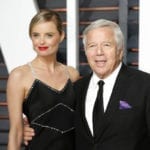Formal media training is important. But its value is lessened when the same formula is used regardless of the client. That’s why PR veteran Arthur Solomon always believed that the account team should play a crucial role in the process and insist that the media trainers not use the “one size fits all” formula.
Stories by Arthur Solomon


9 Things About PR They Didn’t Teach You in College
October 11th, 2019 by Arthur SolomonThere’s much value in studying PR in college. On the other hand, there are a lot of practical ins and outs about PR that students can miss. This is especially so when it comes to media relations, particularly when your instructors aren’t working media. Veteran PR pro and former journalist Arthur Solomon offers nine insights about PR that you might have missed in college.

Tips to Prepare Your Executive for an Interview
September 18th, 2019 by Arthur SolomonDespite what you might have heard, most journalists are not out to get you or your brand’s executives. On the other hand, just because content creators are nice people, doesn’t mean you shouldn’t be prepared for an interview. Veteran PR pro and former journalist Arthur Solomon offers tips PR pros can use to ensure that interviews go smoothly.

How to Create the Perfect PR Person
August 6th, 2019 by Arthur SolomonVeteran PR pro Arthur Solomon assembles a checklist comprising the traits he thinks would make the perfect PR pro. The idea for this exercise is based on an assignment a brand executive gave him years ago, when he was with Burson-Marsteller. Despite the myriad changes in PR since that time, the traits he chose then don’t seem very different from those he says he’d pick today. They include a mix of media relations skills, integrity, and creative thinking.

Tips for How PR Pros Should Answer Media Questions
May 15th, 2019 by Arthur SolomonThere’s no rule in media relations that says communicators need to answer a reporter’s question immediately, particularly during a crisis. Never lie to a reporter, but sometimes doing the best thing for a brand means deferring on a question until you’re ready with an answer that’s carefully crafted. Veteran communicator Arthur Solomon offers tips about how to do this well.

Here Are Some Headlines That Young PR Pros Should Learn From
April 3rd, 2019 by Arthur SolomonVeteran PR pro Arthur Solomon continues his traditional review of headlines that were instructive to young communicators. In truth, they’re good lessons for all PR pros. The first headlines offer lessons in career management, media relations and crisis response.

How to Move Up in PR (Hint: It Takes More Than Good Work)
March 26th, 2019 by Arthur SolomonIt’s a dirty, little secret that veteran PR pros know, but newcomers, fresh from communications school, might not: it takes more than good work to advance your career. Veteran PR pro Arthur Solomon lets us in on several ways to bolster your PR career. His top tips include building strong relationships and always making your client look good.

The Luddites of our Craft: Crisis Tips for the New England Patriots
February 26th, 2019 by Arthur SolomonOne-size-fits-all is great for some things, but it rarely works when managing a PR crisis. Recent evidence is the statement the New England Patriots issued when its owner was caught in a sting operation. Uttering a quick denial of alleged wrongdoing is a bad move unless you can back up your statement with facts. Better to say you’ll wait to comment until more facts are available and move on.

PR Lessons Learned from the 2018 Political Scene
December 31st, 2018 by Arthur SolomonVeteran PR pro and former journalist Arthur Solomon offers the second of his two-part series about the valuable lessons communicators can learn from federal government communications. Pulled from 2018’s headlines, the examples he uses offer lessons in ethics, crisis and other PR activities.

Good and Bad Lessons for New PR Pros from Political Talk Shows
October 26th, 2018 by Arthur SolomonYou’ve no doubt heard the PR maxim, “Act like a reporter.” Veteran communicator Arthur Solomon offers tips on how to do that using the backdrop of cable’s political talk shows and broadcast networks’ nightly newscasts. He also provides advice on the best ways to write pitches and press releases.
